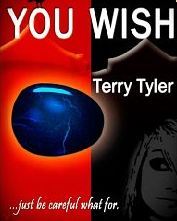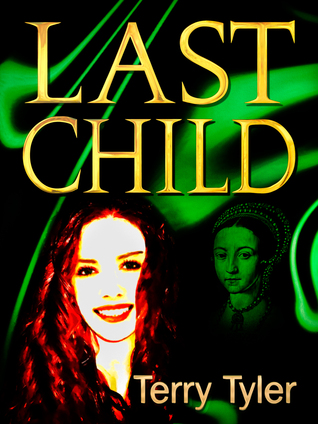date newest »
newest »
 newest »
newest »
message 1:
by
Shelley
(new)
Jun 07, 2016 12:17AM
 Great interview ladies. I love the sound of your new book, Terry :-)
Great interview ladies. I love the sound of your new book, Terry :-)
reply
|
flag
 Shelley wrote: "Great interview ladies. I love the sound of your new book, Terry :-)"
Shelley wrote: "Great interview ladies. I love the sound of your new book, Terry :-)"Cheers, Shelley.... now I AM going to switch off the internet and write....! x
 Shelley wrote: "Great interview ladies. I love the sound of your new book, Terry :-)"
Shelley wrote: "Great interview ladies. I love the sound of your new book, Terry :-)"Glad you enjoyed the interview, Shelley! :)
 Terry wrote: "Shelley wrote: "Great interview ladies. I love the sound of your new book, Terry :-)"
Terry wrote: "Shelley wrote: "Great interview ladies. I love the sound of your new book, Terry :-)"Cheers, Shelley.... now I AM going to switch off the internet and write....! x"
Hahaha! It is a big distraction :) Thanks for being a wonderful guest, Terry - now go and write that book x
 Maria wrote: "Terry wrote: "Shelley wrote: "Great interview ladies. I love the sound of your new book, Terry :-)"
Maria wrote: "Terry wrote: "Shelley wrote: "Great interview ladies. I love the sound of your new book, Terry :-)"Cheers, Shelley.... now I AM going to switch off the internet and write....! x"
psst - wrote 2500 words, so feel pleased with myself - that's after two days of 0 words, though....!
 A great interview with invaluable information for a novice writer like myself. I'll keep those pointers in mind for future reference.
A great interview with invaluable information for a novice writer like myself. I'll keep those pointers in mind for future reference.Always helpful Terry :)
 Terry wrote: "Maria wrote: "Terry wrote: "Shelley wrote: "Great interview ladies. I love the sound of your new book, Terry :-)"
Terry wrote: "Maria wrote: "Terry wrote: "Shelley wrote: "Great interview ladies. I love the sound of your new book, Terry :-)"Cheers, Shelley.... now I AM going to switch off the internet and write....! x"
p..."
Good progress! :)
 Michael wrote: "A great interview with invaluable information for a novice writer like myself. I'll keep those pointers in mind for future reference.
Michael wrote: "A great interview with invaluable information for a novice writer like myself. I'll keep those pointers in mind for future reference.Always helpful Terry :)"
Thanks for commenting, Michael :) Glad you enjoyed the interview.
 Michael wrote: "A great interview with invaluable information for a novice writer like myself. I'll keep those pointers in mind for future reference.
Michael wrote: "A great interview with invaluable information for a novice writer like myself. I'll keep those pointers in mind for future reference.Always helpful Terry :)"
Thanks so much, Michael, I'm glad it was helpful. Good luck with the writing!
 Thanks for the mention...I use Createspace and they are good. It does tie you in to Amazon, but that's OK for now. Best thng about them is the troubleshooting team, who are quick to respond to problems.
Thanks for the mention...I use Createspace and they are good. It does tie you in to Amazon, but that's OK for now. Best thng about them is the troubleshooting team, who are quick to respond to problems.
 Great interview and sound advice as usual, particularly about dealing with reviews.That new book sounds intriguing. Can't wait :) And thanks so much for the mention!
Great interview and sound advice as usual, particularly about dealing with reviews.That new book sounds intriguing. Can't wait :) And thanks so much for the mention!
 And thanks for mentioning me, too. I also use CreateSpace, which is very straightforward. Interestingly, I've found that paperback sales have jumped lately. It's good to feel that there are physical books out there in the world. Absolutely agreed with what you say about editors and proofreaders.
And thanks for mentioning me, too. I also use CreateSpace, which is very straightforward. Interestingly, I've found that paperback sales have jumped lately. It's good to feel that there are physical books out there in the world. Absolutely agreed with what you say about editors and proofreaders.
 Carol wrote: "Thanks for the mention...I use Createspace and they are good. It does tie you in to Amazon, but that's OK for now. Best thng about them is the troubleshooting team, who are quick to respond to prob..."
Carol wrote: "Thanks for the mention...I use Createspace and they are good. It does tie you in to Amazon, but that's OK for now. Best thng about them is the troubleshooting team, who are quick to respond to prob..."Thanks - I always hope people will read the comments in interviews, which often yield more tips!
 Alison wrote: "Great interview and sound advice as usual, particularly about dealing with reviews.That new book sounds intriguing. Can't wait :) And thanks so much for the mention!"
Alison wrote: "Great interview and sound advice as usual, particularly about dealing with reviews.That new book sounds intriguing. Can't wait :) And thanks so much for the mention!"It's a load of crap at the moment, Alison, but is early days!
 Wendy wrote: "Great interview. Thanks for the mention. That dark psychological drama sounds intriguing."
Wendy wrote: "Great interview. Thanks for the mention. That dark psychological drama sounds intriguing."You're welcome :)
 Ann wrote: "And thanks for mentioning me, too. I also use CreateSpace, which is very straightforward. Interestingly, I've found that paperback sales have jumped lately. It's good to feel that there are physica..."
Ann wrote: "And thanks for mentioning me, too. I also use CreateSpace, which is very straightforward. Interestingly, I've found that paperback sales have jumped lately. It's good to feel that there are physica..."Thanks, Ann ~ my proofreading sister and I (Julia) are on a bit of a mission to help people stop wasting money on rubbish proofreaders!
 Hi Maria and Terry - really interesting information ... lots to take on board, but succinctly put - thanks and cheers Hilary
Hi Maria and Terry - really interesting information ... lots to take on board, but succinctly put - thanks and cheers Hilary
 A down to earth practical interview with great advice that I'm sure many will take on board. Thanks both.
A down to earth practical interview with great advice that I'm sure many will take on board. Thanks both.
 Just caught up with this, really great interview with good advice. Loving the sound of the new book :)
Just caught up with this, really great interview with good advice. Loving the sound of the new book :)
 Cathy wrote: "Just caught up with this, really great interview with good advice. Loving the sound of the new book :)"
Cathy wrote: "Just caught up with this, really great interview with good advice. Loving the sound of the new book :)"Thanks, Rosie, Cathy, Hilary and Judith! Good idea re-blogging this on my own blog, then - so easy to miss stuff. Hoping the new book works out, Cathy - it's at the 'first draft and it's a load of rubbish' stage, but I commence the real work this week - 2nd draft!!
 Terrific points on how to deal with bad reviews T and I love the sound of your new book. Super interview ladies :-)
Terrific points on how to deal with bad reviews T and I love the sound of your new book. Super interview ladies :-)
 Georgia wrote: "Terrific points on how to deal with bad reviews T and I love the sound of your new book. Super interview ladies :-)"
Georgia wrote: "Terrific points on how to deal with bad reviews T and I love the sound of your new book. Super interview ladies :-)"Thank you! :)
 Rosie wrote: "Enjoyed reading this, sound advice as always from Terry, thanks for the post Maria."
Rosie wrote: "Enjoyed reading this, sound advice as always from Terry, thanks for the post Maria."Glad you enjoyed it, Rosie!
 Hilary wrote: "Hi Maria and Terry - really interesting information ... lots to take on board, but succinctly put - thanks and cheers Hilary"
Hilary wrote: "Hi Maria and Terry - really interesting information ... lots to take on board, but succinctly put - thanks and cheers Hilary"Hi Hilary! Thanks for reading :)
 Judith wrote: "A down to earth practical interview with great advice that I'm sure many will take on board. Thanks both."
Judith wrote: "A down to earth practical interview with great advice that I'm sure many will take on board. Thanks both."Thank you, Judith! Glad you enjoyed it :)
 Cathy wrote: "Just caught up with this, really great interview with good advice. Loving the sound of the new book :)"
Cathy wrote: "Just caught up with this, really great interview with good advice. Loving the sound of the new book :)"Thanks for stopping by, Cathy. Yes, her book sounds great, doesn't it? :)











